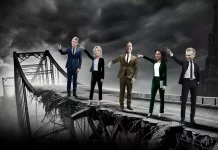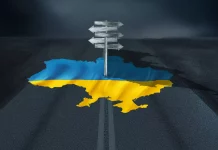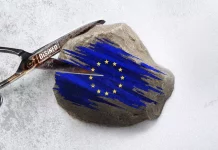Weekly update on Kremlin disinformation efforts in Europe
- The Washington Post reported that harassment of the U.S. ambassadors and their diplomatic staff in Russia and other European countries by the Russian intelligence services significantly increased, from following diplomats and their families to even breaking into their homes. According to the spokesman for the Russian Embassy in Washington, those actions are reciprocal.
- Vladimir Yakunin, Russian businessman and associate of President Vladimir Putin with rumoured KGB past, has launched a “Dialogue of Civilizations” institute in Berlin, according to Deutsche Welle. The institute has denied any direct connections to the Kremlin.
- Russia’s State Duma passed new anti-terrorism measures. According to The Guardian, this legislation possibly also aims at Kremlin opponents and protesters, since it toughens the punishment for extremism: a charge that has been increasingly brought against social media users critical of Russia’s involvement in Ukraine and carries from four to eight years in prison.
- Head of the Kremlin Watch Program Jakub Janda participated in a seminar hosted by ALDE group in Brussels called “Kremlin lies: EU’s response to disinformation.” He presented the European Strategy against Disinformation Efforts. EUobserver published a report from the event.
- “At the moment nearly everything that has been achieved during the 1990s is disappearing: liberal thinking is disappearing, and we have Putin directing massive propaganda not only at the people of Russia, but at European societies as well.” These are the words of Marieluise Beck, German politician and member of the Bundestag’s Committee on Foreign Affair. In an interview for New Eastern Europe, she also speaks about the situation in Ukraine and the level of public debate in Germany.
- The Daily Mail and many other tabloids and news networks featured a story spread originally by social media and Russian websites, including a video which allegedly shows a separatist being buried alive in Ukraine but seems to be staged. Stopfake.org analysed the authenticity of the video, you can read the whole report HERE.
- During the last week, pro-Kremlin media reported several conspiracies, including one saying that Putin is successful in Syria because he consults with aliens. To know more, read and subscribe to the Disinformation Review by the EEAS East StratCom Task Force.
Kremlin Watch reading suggestions
“Spain versus Russia’s kleptocracy”; a commentary by Mark Galeotti; European Council on Foreign Relations
In January, a Spanish judge has issued a request for international arrest warrants for several Russian officials for their alleged involvement in organised crime. Those warrants concern, for example, General Nikolai Aulov and parliamentarians V. Reznik and I. Sobolevski. They are charged with helping Gennady Petrov, leader of Russian gang working in Spain, in a matter of his protection from police authorities back in Russia. One of the consequences is that through its investigation, Spain is pointing out the connection between Russian political scene and organised crime. Needless to say that Russian stance to similar investigations is deeply critical. For example, the head of the Russian investigation committee Alexander Bastrykin believes that similar inquiries and international law in general are part of hybrid war led against Russia. Investigations like this might be one of the most effective instruments for encouraging the decriminaliszation of the Russian political system. This is one of the reasons why this issue should also be addressed at the EU level.
“EU strategic communications: With a view to countering propaganda”, an in-depth analysis by the European Union Institute for Security Studies, France
Although the success of Russian “soft power” offensive across Europe seems to be questionable, for example, in the case of spreading the narrative on Ukraine, Russia still managed to influence significant parts of the European elite and their approaches to Russia and Ukraine by deepening the dissatisfaction with the European integration project. What can the European Union do to enhance its efforts to face Russian strategic communication? The budgetary lines allocated to communications are impractically scattered among different EU institutions with different responsibilities and competences, and are often used for small, uncoordinated and sometimes unprofessionally designed projects. It would be useful to consolidate communications efforts and budgets across the board and maybe even to create a dedicated instrument for external communications under the authority of the HR/VP. The EU should also be able to hire regional analysts and media operators with skills essential to give substance and credibility to strategic communications. The work of EEAS East StratCom Task Force could be extended, expanded, and translated into as many languages as necessary. Rapid intervention teams able to quickly develop storylines about major policy issues or unfolding crises might also prove useful.
Euroatlantic experts on disinformation warfare
- Ben Nimmo explains for Newsweek how Brexit benefits Russia, possibly tipping of the balance on sanctions and making the EU more vulnerable.
- Keir Giles for Chatham House agrees and also warns against the breach of the UK’s integrity which could present an opportunity for Russia.
Tweet of the week
No matter what happens tomorrow with our #Brexit project, about half of Britain will be upset. Remember, Russia is ready to help.
— Soviet Sergey (@SovietSergey) June 22, 2016
Current state of pro-Kremlin scene in the Czech Republic
Unsurprisingly, the main focus of the pro-Kremlin outlets in the Czech Republic has been on the results of the British referendum. In general, they celebrated the success of the “Leave” campaign and welcomed it as a victory of the people against the oppressive Union. The Czech ex-president Václav Klaus even wrote a commentary saying that the Great Britain decided to “stand up against megalomaniac plans to create pan-European empire for the third time,” the first two cases being in the Napoleon and Hitler eras.

Although the consequences of the vote do not seem to be that clear. The Czech version of Sputnik focused on reporting the possibility that the EU might dissolve. Another website claimed the exact opposite, that the referendum will only make the process of creating “a European superstate” faster. The same website also published two articles, one saying that Brexit means a defeat to the US and the TTIP agreement, the other one arguing that Brexit will strengthen the US global hegemony.
Kremlin Watch is a strategic program of the European Values think-tank, which aims to unravel and confront instruments of Russian hybrid war which is focused against liberal-democratic system. Find out more at www.europeanvalues.net/





